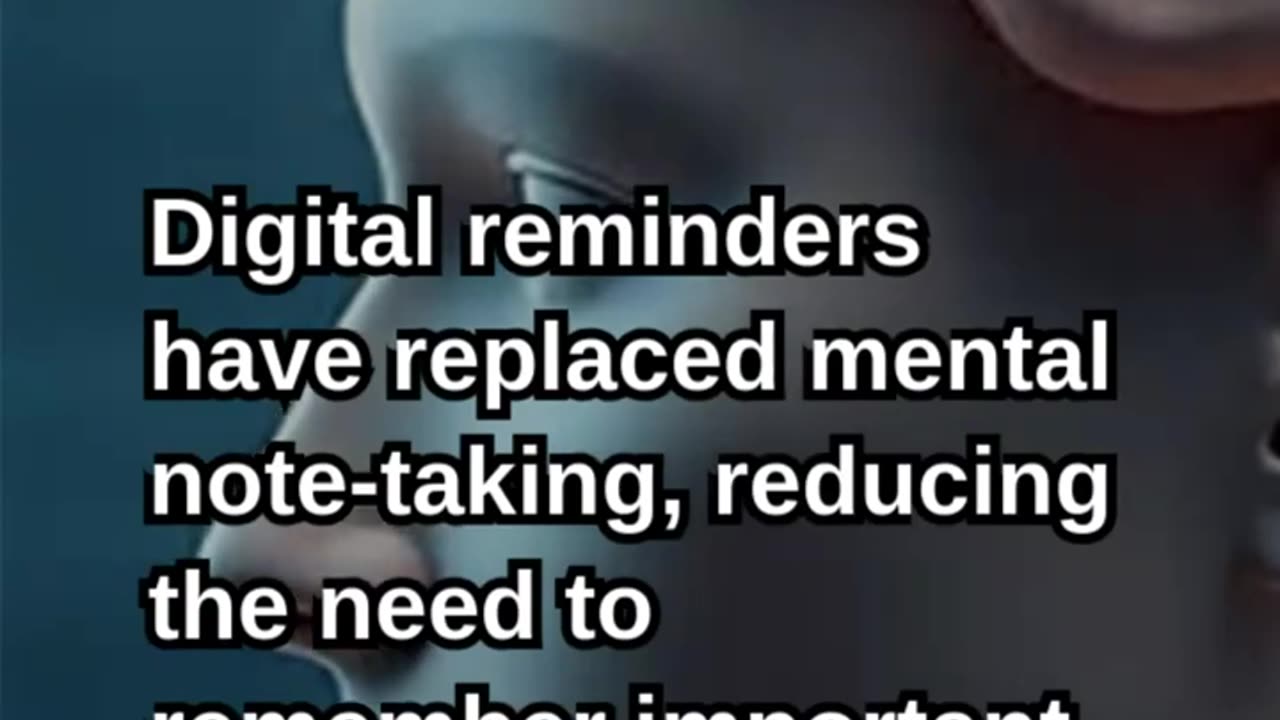Premium Only Content

Is AI Making Us Rely Less on Human Memory
In today’s digital age, Artificial Intelligence (AI) is increasingly integrated into our everyday lives—managing our schedules, remembering our passwords, suggesting what to watch, and even helping us write.
Go here to find out what tools we are using each day to be successful in our business.
https://versaaihub.com/resources/
https://versaaihub.com/media-and-entertainment/
https://www.instagram.com/versaaihub/
https://x.com/VersaAIHub
https://www.youtube.com/@VideoProgressions
https://www.youtube.com/@MetaDiskFinancial
While AI has made life more convenient, it has also raised an important question: Are we relying less on our own memory because of AI?
The short answer is yes. AI and digital tools are gradually taking over tasks that once depended on human memory. For example, instead of memorizing phone numbers, we store them in our smartphones. Instead of recalling directions, we rely on GPS navigation. Calendar apps remind us of meetings, voice assistants set alarms and timers, and search engines provide instant answers to nearly any question.
This shift is part of a broader phenomenon called "cognitive offloading"—where we transfer mental tasks to external tools. AI is becoming the most powerful tool for offloading memory, performing tasks not just faster, but often more accurately than we can. It remembers every detail, never gets tired, and is always accessible.
In professional settings, AI-driven systems are used for data analysis, knowledge management, and decision support, reducing the need for individuals to memorize complex data or procedures. Even in education, students are now more likely to “Google” answers than memorize information, shifting the focus from recall to research skills.
However, this growing reliance on AI also comes with trade-offs. Reduced mental exercise may weaken our ability to retain information over time. Studies show that when people know information is stored elsewhere—like in a search engine—they’re less likely to remember it. This can lead to shallower learning and decreased mental resilience.
Moreover, dependence on AI creates vulnerability. If the technology fails or provides inaccurate data, we may find ourselves at a loss without the backup of our own memory or critical thinking. It also raises concerns about data privacy, information overload, and digital distractions.
That said, using AI to offload memory tasks isn’t necessarily negative. Just as writing, books, and the internet extended our cognitive reach, AI allows us to focus on more strategic, creative, and emotional aspects of thinking. The key lies in balance—using AI as a support system rather than a crutch.
In conclusion, AI is indeed reshaping how we use memory, but it doesn’t have to replace our thinking. With mindful use, AI can augment human intelligence, freeing up brainpower for deeper learning, problem-solving, and innovation.
Go here to find out what tools we are using each day to be successful in our business.
https://versaaihub.com/resources/
https://versaaihub.com/media-and-entertainment/
https://www.instagram.com/versaaihub/
https://x.com/VersaAIHub
https://www.youtube.com/@VideoProgressions
https://www.youtube.com/@MetaDiskFinancial
#ArtificialIntelligence, #HumanMemory, #CognitiveOffloading, #DigitalAge, #AIandHumans, #MemoryDecline, #SmartTechnology, #AIImpact, #MindAndMachine, #TechDependency, #AIinEverydayLife, #DigitalMemory, #MemorySupport, #FutureOfThinking, #MachineAssistedLife, #AIandLearning, #HumanVsAI, #DigitalCognition, #TechBalance, #AIRevolution
-
 0:51
0:51
WFH University
14 hours agoGoogle to Invest $15 Billion in AI Data Centre
8 -
 LIVE
LIVE
FreshandFit
1 hour agoThe Biggest Debt Problem in America
11,256 watching -
 2:10:56
2:10:56
Inverted World Live
4 hours agoRobot Holocaust | Ep. 123
51.8K4 -
 3:22:33
3:22:33
Laura Loomer
4 hours agoEP149: Trump Frees the Hostages: Will HAMAS Respect the Ceasefire?
37.5K19 -
 1:02:02
1:02:02
The Nick DiPaolo Show Channel
4 hours agoTrump’s Success Rattling Lefties | The Nick Di Paolo Show #1804
6.54K20 -
 2:49:33
2:49:33
TimcastIRL
4 hours agoDemocrat Call On Liberals To 'FORCEFULLY RISE' Against Trump, DHS ATTACKED In Chicago | Timcast IRL
197K89 -
 LIVE
LIVE
Badlands Media
10 hours agoDEFCON ZERQ Ep. 013
6,614 watching -
 LIVE
LIVE
SpartakusLIVE
6 hours agoLIVE from SUPER SECRET, VIP Location || BEACH FRONT into Verdansk
748 watching -
 1:20:01
1:20:01
Flyover Conservatives
23 hours ago"The Testosterone Levels of a Baby Bird" - America’s Health Crisis w/ Dr. Troy Spurrill | FOC Show
22.6K -

PandaSub2000
1 day agoLIVE 10pm ET | SONIC RACING CROSSWORLDS with YOU!
15.1K2